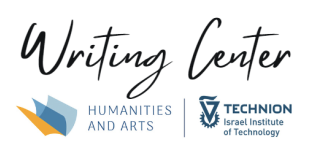Dr. Tzipora Rakedzon
Language and communication research lab
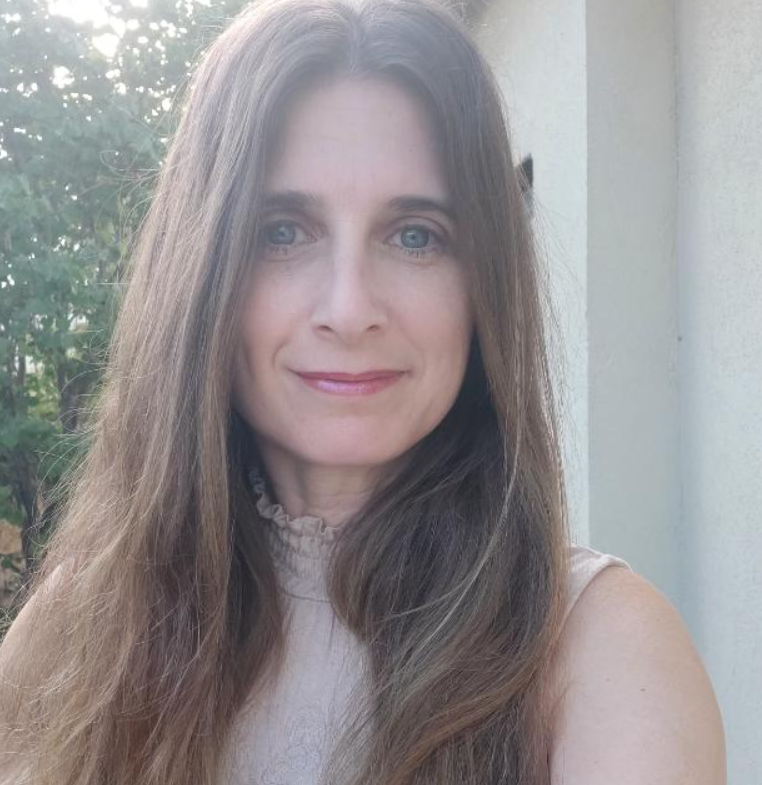
About me
Since 2002, I have worked at the Technion – Israel Institute of Technology. I currently serve as the Associate Head of the Department of Humanities and Arts at the Technion – Israel Institute of Technology. I am also the academic head and a lecturer of Graduate Academic Writing in the department. In the past, I was also the director of the English Program at the Guangdong Technion Israel Institute of Technology in China.
I received my PhD at the Technion in science communication at the Department of Education in Technology and Science, and my BA and MA in linguistics from the University of Haifa.
My research interests include teaching pedagogies and assessment of scientific and professional communication, especially writing and vocabulary. One of my projects, the De-jargonizer, has been published in PLOSone and featured in Nature and in over 40 news sites in 8 languages around the world.
MY LAB
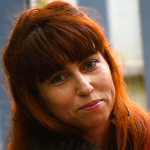
Ilana Shlomov
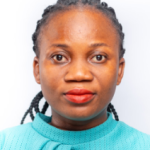
Shallom Abla Lumor

Xinyi ZHANG

Amani Jaber

Andrey S. Druzhinin

Caterina Scaccia

Laila Haddad Najjar
PROJECTS
1 | The De-jargonizer
About
What is the De-Jargonizer?
The De-Jargonizer is an automated jargon identification program aimed at helping scientists and science communication trainers improve and adapt vocabulary use for a variety of audiences. The program determines the level of vocabulary and terms in a text, and divides the words into three levels: high frequency/common words; mid-frequency/normal words; and jargon – rare and technical words.
Why do we need a De-Jargonizer?
Scientists are required to communicate science and research not only to other specialists in the field, but also to scientists and specialists from other fields, as well as to the public and policymakers. One fundamental suggestion when communicating with non-specialists is to avoid professional jargon that is excluding and prevents reader-listener comprehension. However, because scientists are trained to speak with highly specialized language, avoiding jargon is difficult for scientists. Also, there is no standard to aid scientists in adjusting their messages. The De-Jargonizer highlights problematic jargon, allowing those communicating science to consider changing these potentially problematic words with more familiar words (or adding explanations).
Who can benefit from using the De-Jargonizer?
Scientists, science communicators, and science communication trainers can all benefit from the de-jargonizer. Scientists and science communicators can use it to adapt their message for non-specialists. Science communication trainers can use it to assess the progress of their students by evaluating their use of appropriate vocabulary.
New Interactive Science Communication Tasks
The De-jargonizer site has recently introduced innovative AI-based tools and tasks that make the writing process more accessible and effective, focusing on jargon/vocabulary, writing concisely, persuasive writing, and writing about ethical aspects of research.
Each task provides hands-on strategies to refine your writing for various audiences. Ideal for scientists, engineers, and academics seeking to communicate with clarity and impact.
The half-life task: Guides users in creating a series of short research summaries for various audiences, refining each version with individualized AI feedback. Research shows that this iterative feedback process helps researchers improve jargon use and readability.
The persuasive writing task: Master Aristotle’s rhetorical triangle (Logos, Pathos, Ethos) to learn and practice using guidelines for compelling scientific narratives. Learn to balance logical arguments, emotional appeals, and credibility to connect with diverse audiences effectively.
The ethics in research task: This activity guides researchers to think about the ethical issues they may have to deal with in their research, and how they can be communicated effectivelyץ

Even after students take a writing course, and even after having some writing experience, very often the challenges of writing research articles continue. Therefore, in universities around the world, even in English-speaking countries, writing centers exist to give students 1:1 help.
These 1:1 meetings are not editing services, but rather a meeting on a work in progress that needs direction and improvement.
Therefore, we have opened a writing center for students at the Department of Humanities and Arts, Technion aims to assist students 1:1 in improving their academic writing for publication and international conferences. Dr Tzipora Rakedzon oversees the academic organization of the program, along with her co-director, Dr Orit Rabkin, and Ms. Shlomit Ben-Ish is in charge of the administrative side.
The writing center has been advertised to all faculty and graduate students by email through the Technion Graduate School. In addition, we have opened a page on our new department website.
Our main aim is to meet with students and give them instruction and feedback on their papers, theses, dissertations, oral presentations, or professional writing needs (e.g., proposals, postdoc/grant applications, CVs, and cover letters). We offer special assistance to reservists who need help with any of their academic needs related to English courses or activities. In addition, we provide assistance to undergraduate students in faculty content courses that are in English, and to faculty that need to teach and/or publish in English.
3 | IMPACT (Inter-Mediterranean Peace And Collaboration)
I am part an Associate Partner of IMPACT (Inter-Mediterranean Peace And Collaboration), a consortium of HEIs, organizations, youth associations, and technology companies from Europe, Israel, and Morocco. Through its actions, the project aims to foster intercultural dialogue and soft skills development.
As part of our collaboration for the 2024-5 academic year, I am giving lectures on academic writing and multicultural communication in online courses for an international group of students
4 | List of publications
TALKS | CONFERENCES
TEACHING
IN THE NEWS
Science Communication Workshop at Princeton
Dr. Rakedzon recently conducted a dynamic workshop at Princeton’s Plasma Physics Laboratory, focusing on research-based tools for effective science communication.
The session introduced innovative AI-powered tools and tasks to make scientific communication more accessible and impactful. Participants explored strategies for handling jargon, writing concisely, crafting persuasive messages, and addressing ethical aspects of research.
Through hands-on activities, live demonstrations, and practical insights, attendees gained valuable skills to better engage both public and academic audiences.
The event was well-received, highlighting the growing importance of clear, impactful communication in science and research.
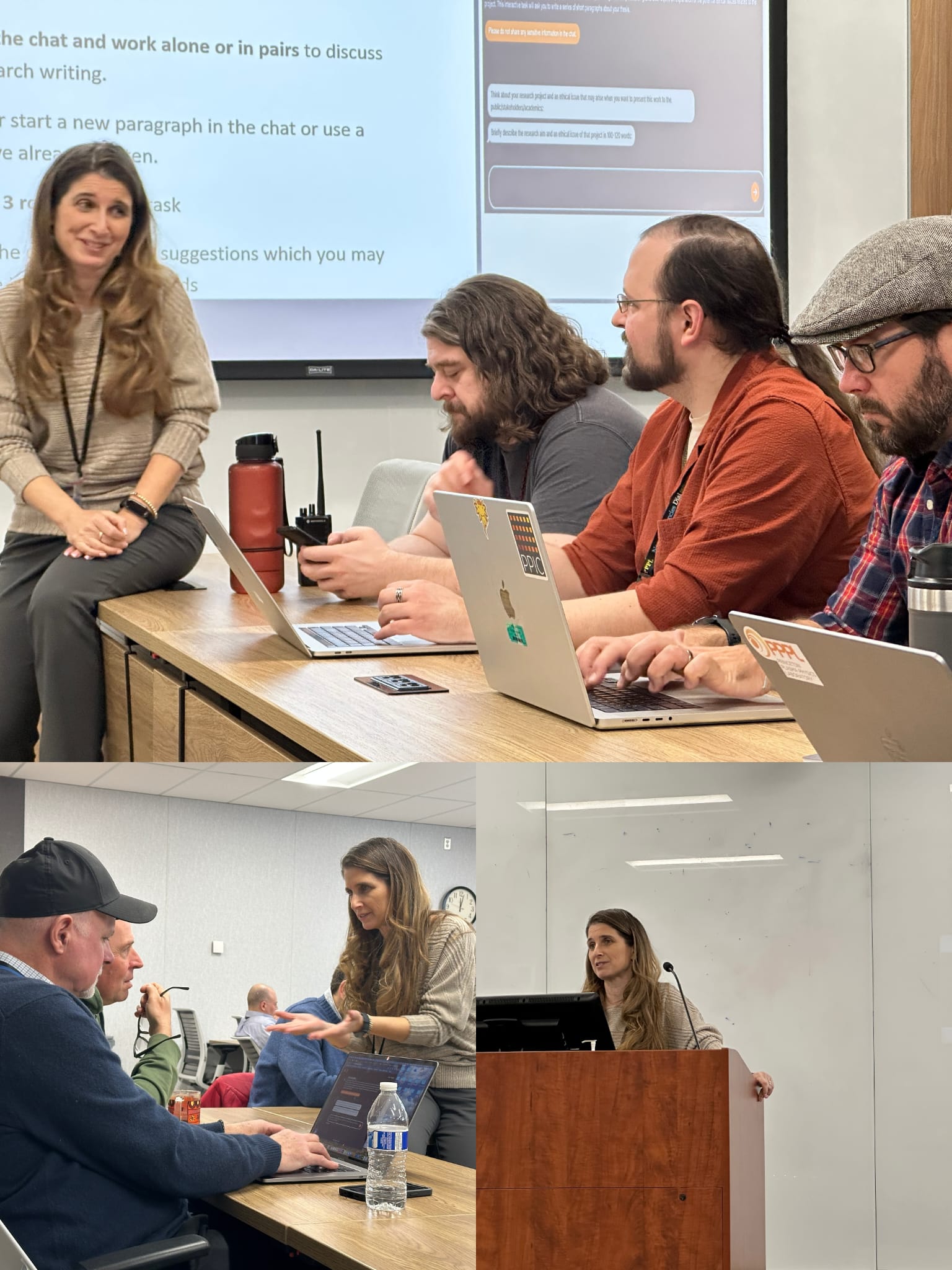
My department seminar - April 2025
From Rubrics to Robots: The Transformation of STEM Writing Instruction, Assessment and Research
Abstract
Writing is one of the most challenging language skills to master, yet it is essential for academic success. Therefore, many universities offer academic writing courses to support students and future researchers in effectively communicating and publishing their work. Similarly, science communication courses provide researchers with the skills to engage broader audiences and enhance the dissemination of their findings beyond their academic community. To maximize the effectiveness of such training, it is crucial to design and assess these courses carefully. Consequently, research in academic and science communication focuses on identifying the most effective ways to support researchers in developing their writing skills and evaluating the impact of various instructional approaches – a central focus of my work.
In this seminar, I will present my research on science communication and academic writing in STEM, situating it within the broader development of writing instruction, assessment, and research. To frame this discussion, I will trace the progression of assessment methods in pedagogy and research – from human-scored rubrics and standardized evaluations to computational approaches such as corpus linguistics, natural language processing (NLP), and machine learning (ML). These technological advancements have enabled large-scale writing analysis, paving the way for AI-driven assessment tools that provide real-time text generation and personalized feedback. By examining these developments, I will highlight how AI has been integrated into my work and the broader field, shaping the way STEM graduate students develop their communication skills and how their writing is assessed.
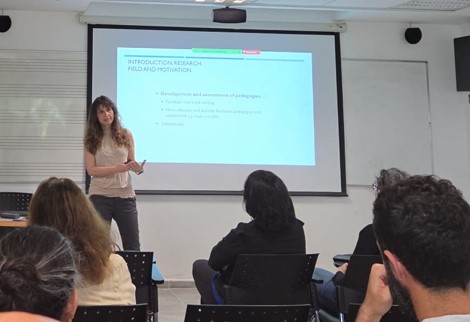
Contact
Offices
Email: Dr. Tzipora Rakedzon hutzipi@technion.ac.il
Links:
Research gate https://www.researchgate.net/profile/Tzipora-Rakedzon
LinkedIn https://www.linkedin.com/in/tzipora-rakedzon-81062343/
Google scholar profile: https://scholar.google.co.il/citations?user=RgBkBwMAAAAJ&hl=en
You can find me at:
Office: 206 Department of Humanities and Arts
Lab: 315 Department of Humanities and Arts
Technion – Israel Institute of Technology
Technion City
3200003 Haifa, Israel
